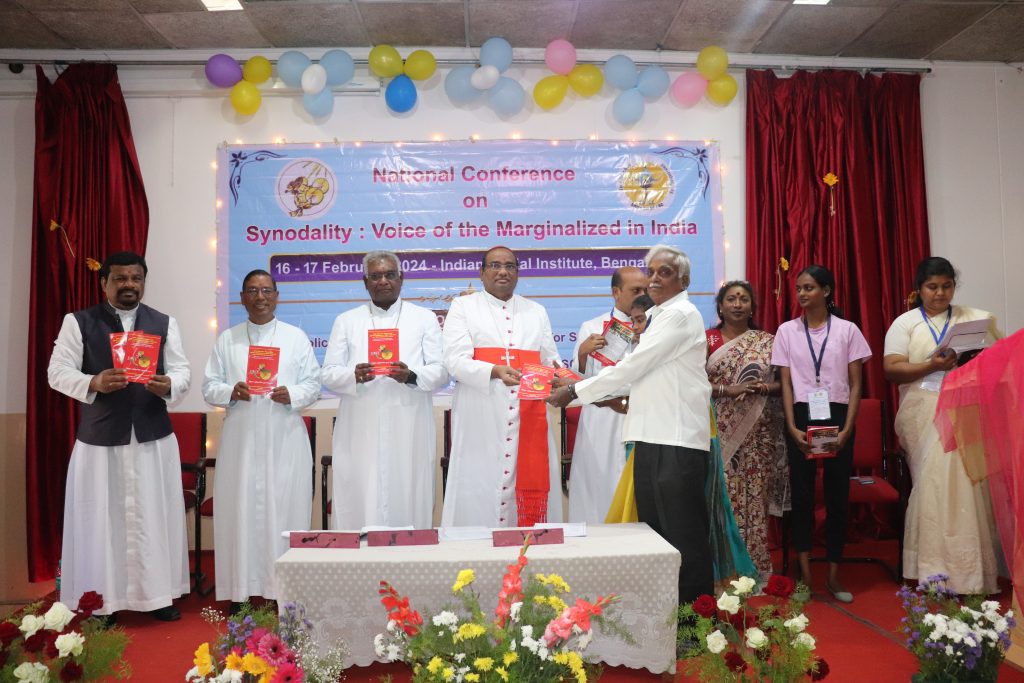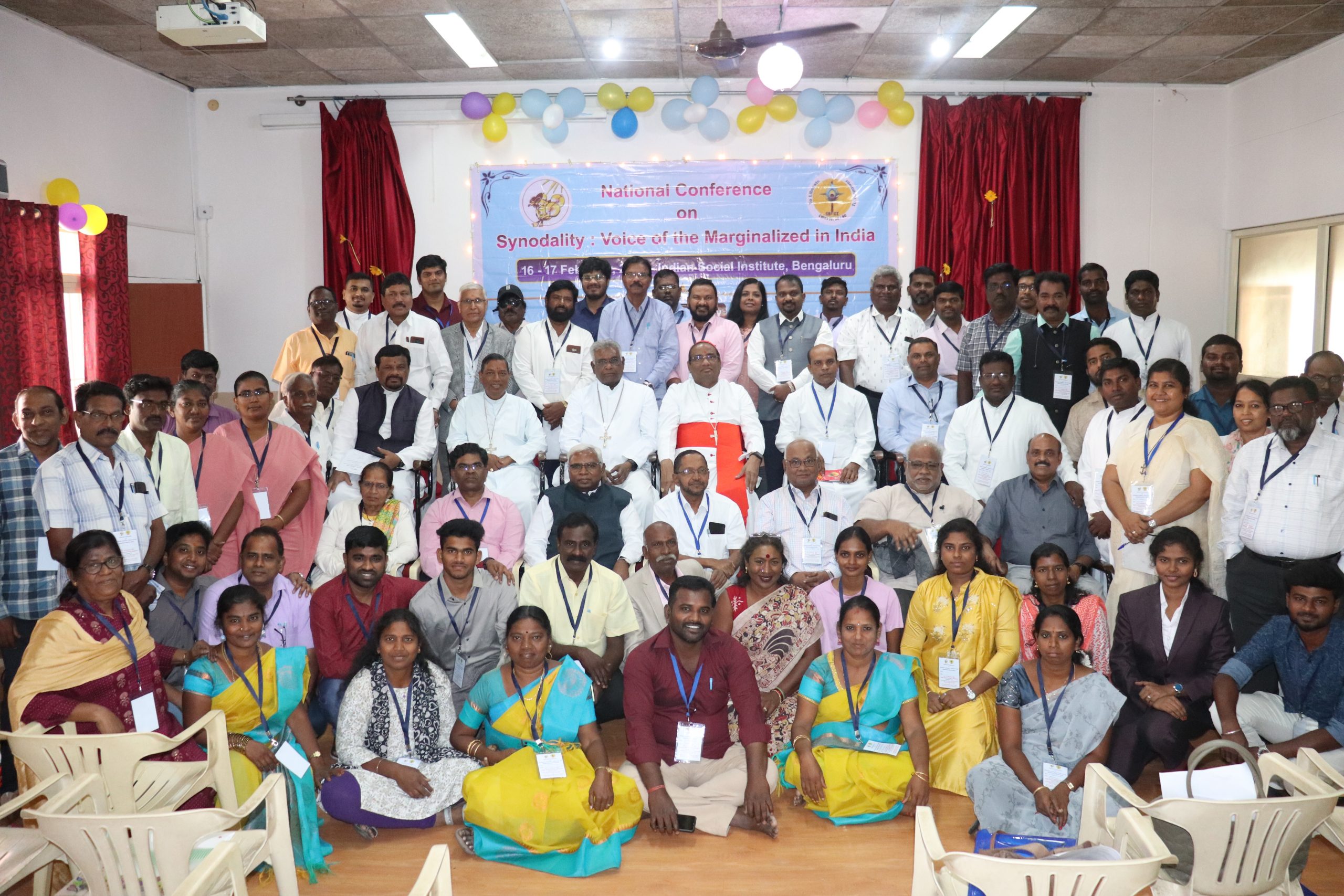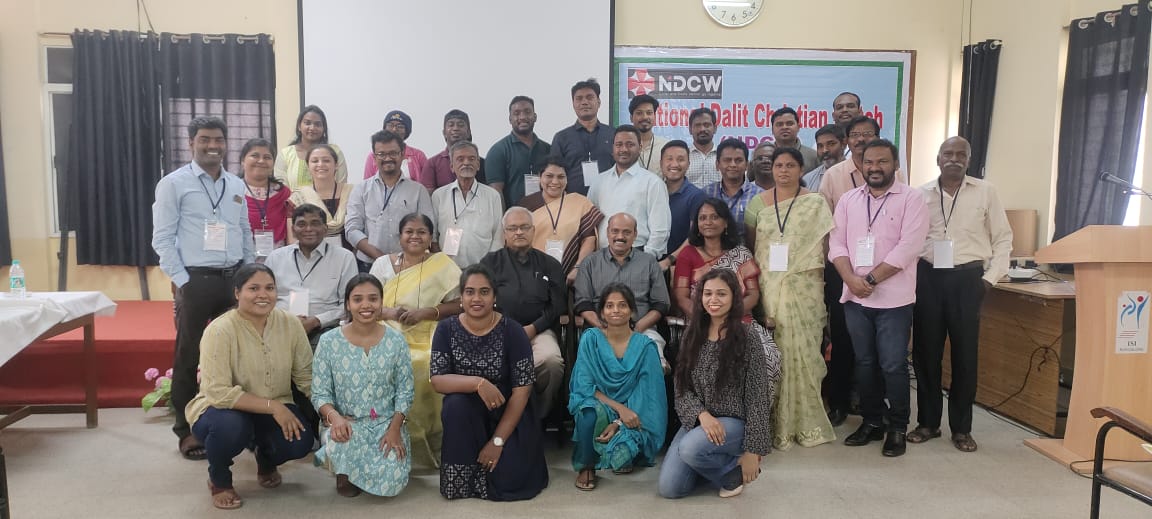By Robancy A Helen
The Synod on “Synodality” (2021-2023) convened by Pope Francis has awakened the entire people of God to deepen communion, enhance participation, and commit ourselves to the mission.
These attempts are to be built upon the foundation of trinitarian communion, Eucharistic participation, and baptismal commitment. As the Body of Christ, Catholics are challenged to walk together with the entire world of creation and the people of goodwill.
But the voice of the marginalized is unheard; often, their voices are crushed to the core, where their representation is marginal in the Catholic Church on many fronts. The Dalit Christians become the victims of companionship, care, and meekness from their leaders and others who dehumanize Dalit Christians and refuse to show them dignity, respect, and work for their due rights.
To grow as a Synodal Church, all members of the Indian Church are to continue an open and transparent dialogue on the removal of the sinful structure of casteism and the evil practice of untouchability.
With this constructive and proactive dialogical engagement, all Disciples of Christ are to be committed to the transformative agenda of journeying together from the fragmentation of casteism to the communion of egalitarianism.
A two-day National Conference on Synodal Church: Voice of the Marginalized in India was organized by the Tamil Nadu Bishops’ Council, Commission for Scheduled Castes and Scheduled Tribes (TNBC Commission for SC/ST) in collaboration with the Catholic Bishops’ Conference of India (CBCI), Office for Scheduled Castes and Backward Classes (CBCI Office for SC/BC) on February 16–17, 2024, at the Indian Social Institute, Bengaluru.
The national conference reflected on the journey of walking together given the Dalit Empowerment Policy of the Catholic Bishops’ Conference of India, 2016, which mandates caste practices and promotes inclusive communities. It is also focused on the denied space of Dalit Christians in the church and society.
Cardinal Anthony Poola, in his presidential address, said that the very focus of the Synodal Church is mission, communion, and participation.
All should be included in the mission of the Catholic Church so that no one is left behind in this process, especially the voice of the marginalized, who should be heard and participate in the Church, he said.

Bishop Sarat Chandra Nayak, the Chairperson of the CBCI Office for SC/BC, and Bishop Neethinathan Anthonisamy, the former Chairperson for the CBCI Office for SC/BC, were at the inauguration of the National Conference.
“Synodality involves sharing, dialogue, communication, communion, respecting each other, and giving dignity to all human beings. So, it is high time that we discuss the Dalit Empowerment Policy in the background of Synodality,” he said.
In this two-day conference, there were keynote addresses focused on the Synodal Church and Dalit Empowerment in the Indian Scenario by Father Cosmon Arockiaraj, a Dalit theologian, and the sharing of thoughts with the responses, the sharing of experiences at the regional levels, and group discussions.
The second edition of the translation of the Dalit Empowerment Policy in Tamil was released.
It is the responsibility of the Catholic Church to encourage the Dalit Christian community to partake in the mission, communion, and participation from the parish to the decision-making level of the Catholic Church.
Building an inclusive community means children, women, and men from marginalized communities should be included and create opportunities and avenues for their inclusion with an open mind and spirit of synodality. The Church has listened to the people, especially the voiceless and marginalized.
While seeking to build synodality and promote it as a culture of being and becoming in an ongoing manner, one cannot afford to be gender-blind, caste-blind, race-blind, or class-blind. says Jesuit Father Maria Arul Raja, an eminent theologian, in his paper presentation.
Caste discrimination, though blatantly against Jesus Christ and the Christian principles of brotherhood, sisterhood, and equality, is practiced as a matter of fact in the church, according to Sister Sujata Jena, an advocate and social activist from Odisha.
There were also paper presentations from eminent speakers, Prof. Lourdhunathan and Father Lourdhuswamy, the former Executive Secretary of the CBCI Office for Scheduled Castes and Backward Classes.
As an outcome of the conference, a memorandum will be submitted to the Vatican, the Catholic Bishops’ Conference of India, and the Conference of Catholic Bishops in India, reiterating the denied space and the empowerment of Dalit Christians in India.
Dalit women and men leaders from Andhra Pradesh, Delhi, Maharashtra, Odisha, Kerala, Karnataka, Tamil Nadu, and Telangana.





